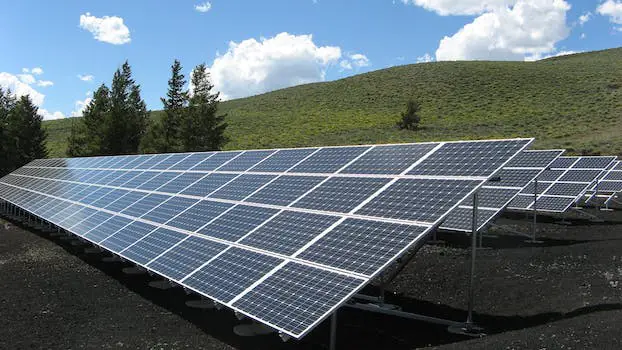
How to Manage Properties with Solar Panels and Renewable Energy
As the world moves towards a more sustainable future, renewable energy sources like solar panels are becoming increasingly popular among homeowners and real estate investors. Solar panels not only help reduce energy costs but also contribute to a greener environment. In this article, we will explore the various aspects of managing properties with solar panels and renewable energy, including installation, maintenance, and financial considerations. We will also discuss the benefits of solar energy for property owners and provide valuable insights for first-time home buyers and real estate investors in the US.
Understanding Solar Panels and Renewable Energy
Solar panels are devices that convert sunlight into electricity. They are made up of photovoltaic (PV) cells, which absorb photons from sunlight and release electrons, creating a flow of electricity. Solar panels can be installed on rooftops, ground mounts, or even as part of a solar carport. Renewable energy, on the other hand, refers to energy sources that are replenished naturally and can be harnessed without causing harm to the environment. Examples of renewable energy sources include solar, wind, hydro, and geothermal power.
Benefits of Solar Panels and Renewable Energy for Property Owners
There are several benefits of installing solar panels and using renewable energy for property owners, including:
- Reduced energy costs: Solar panels can significantly reduce electricity bills by generating free, clean energy for your property. According to the U.S. Department of Energy, the average American household can save between $10,000 and $30,000 over the lifetime of a solar panel system.
- Increased property value: Properties with solar panels are often more attractive to potential buyers, as they offer long-term energy savings and environmental benefits. A study by the Lawrence Berkeley National Laboratory found that homes with solar panels sell for an average of $15,000 more than comparable homes without solar panels.
- Environmental benefits: Solar panels produce clean, renewable energy, reducing your property’s carbon footprint and contributing to a more sustainable future.
- Energy independence: By generating your own electricity, you can reduce your reliance on utility companies and protect yourself from fluctuating energy prices.
- Financial incentives: Many states and local governments offer financial incentives, such as tax credits and rebates, to encourage the adoption of solar panels and renewable energy systems.
Installation and Maintenance of Solar Panels
Proper installation and maintenance are crucial for the optimal performance and longevity of your solar panel system. Here are some key steps to follow:
1. Assess your property’s solar potential
Before installing solar panels, it’s essential to determine whether your property is suitable for solar energy. Factors to consider include the amount of sunlight your property receives, the orientation and pitch of your roof, and any potential shading from trees or nearby buildings. A professional solar installer can help you assess your property’s solar potential and recommend the best system for your needs.
2. Choose the right solar panel system
There are various types of solar panel systems available, including grid-tied, off-grid, and hybrid systems. Grid-tied systems are connected to the utility grid and can sell excess electricity back to the grid, while off-grid systems are entirely independent and rely on battery storage for backup power. Hybrid systems combine the best of both worlds, allowing you to remain connected to the grid while also storing excess energy in batteries for backup power. Your choice of system will depend on your energy needs, budget, and local regulations.
3. Hire a professional installer
Installing solar panels requires specialized knowledge and skills, so it’s essential to hire a professional installer with experience in solar panel installation. Look for installers who are certified by the North American Board of Certified Energy Practitioners (NABCEP) or a similar organization. Be sure to obtain multiple quotes and check references before making a decision.
4. Regular maintenance
Regular maintenance is essential for the optimal performance and longevity of your solar panel system. This includes cleaning the panels to remove dirt and debris, checking for any damage or wear, and ensuring that all connections are secure. Most solar panel systems require minimal maintenance, and many installers offer maintenance packages as part of their services.
Financial Considerations for Properties with Solar Panels
While solar panels can offer significant long-term savings, there are some financial considerations to keep in mind:
- Upfront costs: The initial cost of purchasing and installing a solar panel system can be substantial, ranging from $15,000 to $25,000 or more, depending on the size and type of system. However, many financing options are available, including solar loans, leases, and power purchase agreements (PPAs).
- Return on investment (ROI): The ROI for solar panels depends on factors such as the cost of electricity in your area, the size of your system, and the amount of sunlight your property receives. On average, solar panels have an ROI of around 20%, with most systems paying for themselves within 5 to 10 years.
- Tax credits and incentives: Many states and local governments offer financial incentives, such as tax credits and rebates, to encourage the adoption of solar panels and renewable energy systems. The federal government also offers a 26% tax credit for solar panel installations through 2022, which decreases to 22% in 2023 and expires in 2024 for residential installations.
- Insurance: Solar panels can increase the value of your property, which may result in higher insurance premiums. Be sure to discuss any potential changes to your insurance coverage with your provider.
Conclusion
Managing properties with solar panels and renewable energy can offer significant benefits for property owners, including reduced energy costs, increased property value, and environmental benefits. By understanding the installation and maintenance requirements, as well as the financial considerations, you can make informed decisions about incorporating solar panels and renewable energy into your property management strategy. With the right approach, solar panels can be a valuable investment for homeowners and real estate investors alike, contributing to a more sustainable future for all.
Leave a Reply